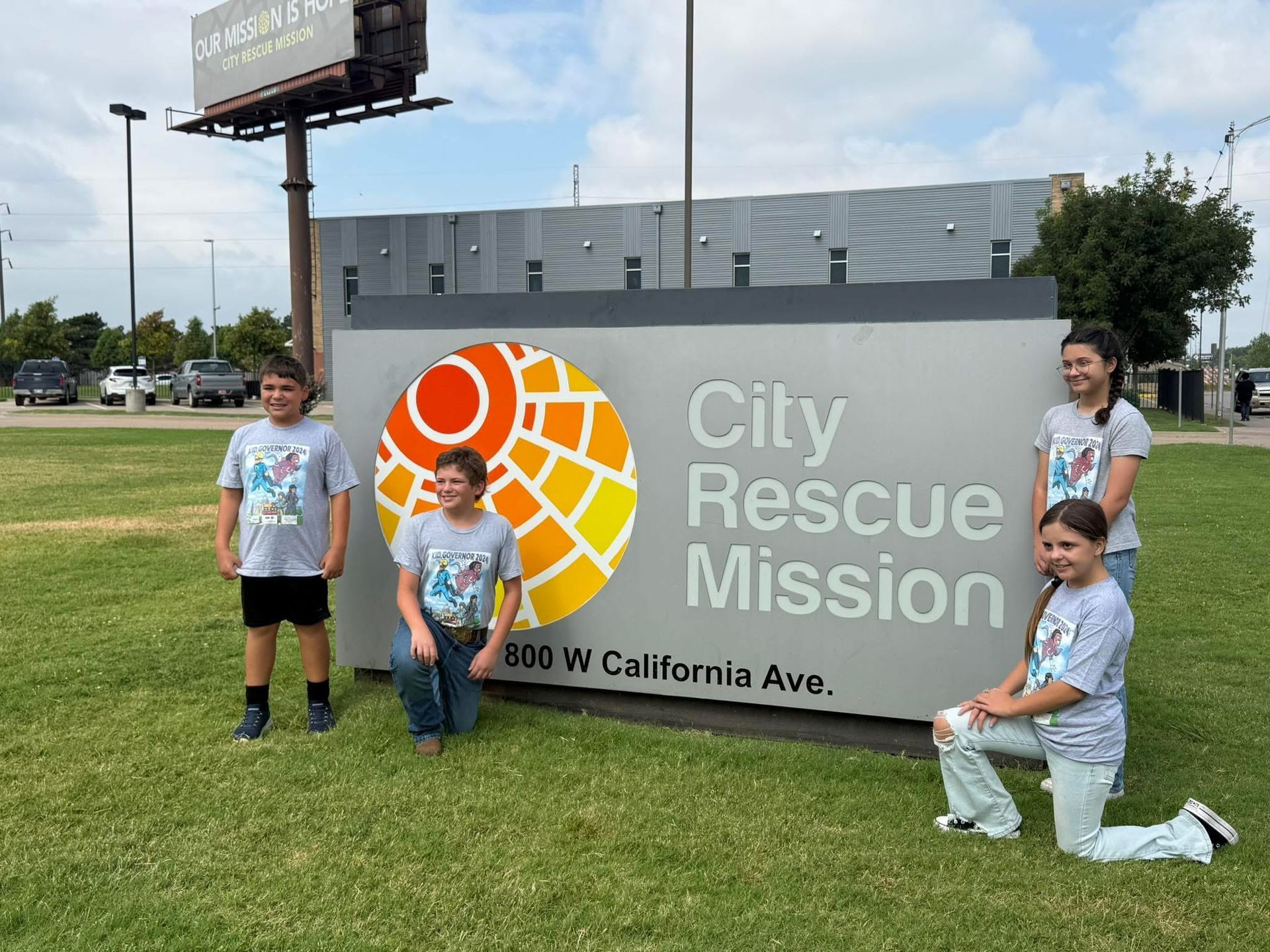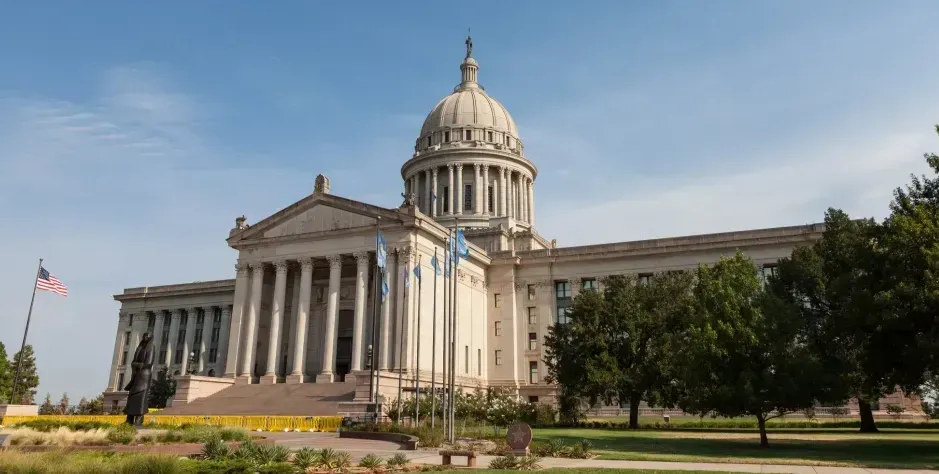Recent News Releases

The Oklahoma Institute for Child Advocacy (OICA) announced today that Axay “Ax” Parekh of Tulsa has been elected President of its Board of Directors for 2026-2027. Parekh, a recognized leader in real estate, advocacy, and community engagement, brings a strong commitment to championing the needs of Oklahoma’s nearly one million children. OICA is a statewide nonprofit organization which has a primary focus on elevating advocacy issues and awareness regarding youth policy. Their goal is for every child to have access to safety, opportunity, and a brighter future. Parekh’s leadership marks an exciting step forward for the organization as it has been several years since the board president has resided in eastern Oklahoma.. “It is an honor to serve in this role,” Parekh said. “Our children deserve a future filled with hope, stability, and opportunity. I encourage everyone to join us in supporting this work.” As OICA launches its year-end fundraising drive, Parekh calls on friends, family, and supporters statewide to give before December 31 to help advance programs and advocacy efforts across Oklahoma. Contributions toward this nonprofit organization are classified as charitable donations and can be declared on one’s tax returns. Other officers elected to two-year terms include Rebekka Lucas of Oklahoma City, Vice-President; Terry Boehrer of Washington, Okla., Treasurer; Samonia Byford of Oklahoma City, Secretary; Sandy Foster of Lawton, Governance Chair; and Amanda Mullins of Norman, Past President. To contribute or learn more, please visit OICA’s website at https://www.oica.org

The Oklahoma Institute for Child Advocacy (OICA) through their project OK Foster Wishes is assisting Oklahoma Human Services (OHS) Holiday Hope program in an effort to provide support for foster youth in the state, according to Joe Dorman, OICA’s CEO. “Our goal is to raise $30,000 – enough to provide 200 gift cards of $150 each to teens in foster care,” Dorman said. “We’ve only raised $1,240 as of Monday, December 1, and that includes one $500 donation.” OICA has created a link for individuals to directly donate to the program. The donation page is found at https://tinyurl.com/2026HolidayHope . OICA has factored the processing fee for each card into the donation amount at the different levels to ensure all needs are met. “OHS asked us to take on this teen age range as those are often the ones who it is harder to shop for with items. This holiday season, you have the power to show a young person in foster care that they are seen and deserving of joy,” Dorman said. “These are youth who often feel anguish during a time of year that celebrates family, warmth, and belonging, a time when these children are unable to be with their biological parents. “These gift cards will provide Oklahoma’s teenaged foster children a chance to choose something for themselves, to experience independence, and feel the joy every young person should during the holidays. Together, we can make certain no young person in Oklahoma foster care feels forgotten. Your support can turn a simple gesture into a lasting message for them: you matter.” OICA has set up different levels for donations, so a person can give $25, $50, or even donate the full amount for a card, or multiple cards. “We know many people are struggling financially this year, a clear indicator by the amount which has been raised so far, so we do not want anyone to place themselves in a tougher financial position,” said Dorman. “We are asking Oklahomans to consider helping with this endeavor and to give what you can to ensure these teens have a little brighter holiday season.” If an Oklahoman would rather contribute to support a local effort working with OHS, locations can be found at https://oklahoma.gov/okdhs/services/foster/holidayhope.html for giving. The deadline is approaching quickly to ensure a gift can be sent to a foster youth. -30- About OICA : The Oklahoma Institute for Child Advocacy was established in 1983 by a group of citizens seeking to create a strong advocacy network that would provide a voice for the needs of children and youth in Oklahoma, particularly those in the state’s care and those growing up amid poverty, violence, abuse and neglect, disparities, or other situations that put their lives and future at risk. Our mission statement: “Creating awareness, taking action and changing policy to improve the health, safety, and well-being of Oklahoma’s children.” About HOLIDAY HOPE: The Holiday Hope program, through Oklahoma Human Services and valued community partners like the Oklahoma Institute for Child Advocacy, is dedicated to spreading joy, support, and hope during the holiday season. Together, we work to brighten the holidays for foster families and children involved with Child Welfare Services by building community connections and ensuring every child experiences the warmth and magic of the season.

OKLAHOMA’S KID GOVERNOR® EMMA STEPHENS (right, standing) of Ardmore along with Kid Secretary of State Lawson Reams of Alva (right, kneeling) and Kid Cabinet members (from left on the left) Alburto Harmon of Perry and Clayton Rohla of Roff, pose at City Rescue Mission in Oklahoma City where they spent a Saturday volunteering as part of the Kid Governor® program, designed to teach fifth-graders the importance of public service and how government operates. (Courtesy Photo) Oklahoma’s Kid Governor® Emma Stephens and several of the Kid Cabinet members recently volunteered for a day at City Rescue Mission in Oklahoma City. Stephens, now a sixth grader from Ardmore who attends Oak Hill Episcopal School, was joined by the Kid Secretary of State Lawson Reams from Alva who attends Lincoln Elementary School, and Kid Cabinet members Clayton Rohla from Roff Elementary School in Roff, and Alburto Harmon from Morrison Elementary in Perry. All the Kid Governor® leaders are now sixth graders, having been elected during their fifth-grade year, and all are active members of Oklahoma 4-H, which partnered with the Oklahoma Institute for Child Advocacy (OICA) to put on the program for 2025. “We are very proud of all our Kid elected officials,” said Joe Dorman, CEO of OICA. “Each of them is learning the lessons necessary to take the reins of leadership when their time comes to lead this state. All of Oklahoma should be proud of these kids for giving up a Saturday to help others.” OICA Program Director Licia Walters accompanied the young leaders during their service at City Rescue Mission. “These are impressive young people who took their work very seriously,” said Walters, who directly oversees the program. “They were engaged, enthusiastic, and helped brighten the day by serving meals to many who depend on City Rescue Mission and helping to clean up.” For the past eight years, the OICA has sponsored Oklahoma’s Kid Governor program. Three years ago, Oklahoma became the fourth state in the national Kid Governor® program, developing a state-specific curriculum on voting and government. Oklahoma 4-H partnered with OICA for this year’s Kid Governor program. Classroom sign-up for the 2025-2026 school year is underway. The next Oklahoma Kid Governor® will be elected from registered fifth-grade classrooms this November and will be sworn in during a State Capitol ceremony in February 2026. If you are a fifth-grade teacher and would like to sign up your class, or get more information, contact Licia Walters by email at lwalters@oica.org or by telephone at 405-326-KIDS (5437). You can also go to https://ok.kidgovernor.org in order to learn more about the program. A separate program is being conducted solely for 4-H members. 4-H members in the fourth, fifth, and sixth grades who would like to participate in that program can sign up through Oklahoma 4-H’s enrollment system; only Fifth Graders can run for 4-H Kid Governor. For more information on the 4-H/KG program, contact Cathleen Taylor at the state 4-H office at cathleen.taylor@okstate.edu . The purpose of Kid Governor® is to educate students about elections and the role of public service and elected officials in creating a brighter tomorrow.

The Oklahoma Institute for Child Advocacy (OICA) and its CEO Joe Dorman released the following statement on the passing of Gov. George Nigh at the age of 98: “The Oklahoma Institute for Child Advocacy mourns the passing of one of our greatest patrons and an Oklahoma statesman without compare, The Honorable George Nigh. Governor Nigh was a staunch supporter of OICA and the Kid Governor program. His memory will guide us in the years ahead and our deepest sympathies go to his family and the entire state. “Goodbye to my friend, mentor, and a true public servant, the modern-day Will Rogers of Oklahoma. My life was certainly better for you being a part of it.”

Each summer, the Oklahoma Institute for Child Advocacy (OICA) holds its annual Heroes Ball to celebrate champions for children. Among the awards presented are two chosen by the people: The Anne Roberts People’s Choice Awards for Child Advocacy. The award is named in honor of Anne Roberts, OICA’s longest serving CEO; it recognizes outstanding service to Oklahoma’s children by an individual and an organization, as nominated and voting on by the people. The process began with nominations, which were open to the public. Following the nomination period, the OICA Board of Directors narrows the list to a select few to put forward for an online public vote by Oklahomans. The finalists for this year’s Anne Roberts People’s Choice Awards for Child Advocacy in the Organization category are: M&R Doyle Holdings, Inc. Oklahoma Appleseed Center for Law & Justice. Oklahoma Family Network. Pivot – A Turning Point for Youth. Rainbow Youth Project. Ray of Hope. In the Individual category, the finalists are: Sky Collins. Elizabeth Fisher. Darryl Savell. John Schneider. Sarah Soell. Erika Wright. Online voting is underway and is available through OICA’s website at https://oica.org or by going directly to https://qrco.de/ARPCVOTE25 . Those in attendance at OICA’s Heroes Ball on Saturday, July 26 will receive a final paper ballot to help finish off the voting. Winners will be announced at the Heroes Ball, held this year at OKANA Resort in Oklahoma City. “This award is fully in the hands of those interested in child advocacy in the state of Oklahoma,” said Joe Dorman, OICA’s CEO. “The list of previous winners reads like a ‘Who’s Who’ of Oklahoma Child Advocates.” Previous winners of the Anne Roberts People’s Choice Organizational Award are: 2017 – Whiz Kids Oklahoma. 2018 – Peppers Ranch. 2019 – Oklahoma United Methodist Circle of Care. 2020 – Diabetes Solutions of Oklahoma. 2021 – SoonerStart. 2022 – Fostering Connections. 2023 – Sara’s Project. 2024 – The Anna’s House Foundation. Those individuals who have won the Anne Roberts People’s Choice Individual Award are: 2017 – Brenda Lene’. 2018 – Cody Inman. 2019 – Judy Payne. 2020 – Ryan Abernathy. 2021 – Melissa Ahlgrim. 2022 – Amber Cuyler. 2023 – Alethea Satterwhite. 2024 – Mary Beth Talley. Tickets to the Heroes Ball are going fast. They can be purchased at https://www.oica.org/events






